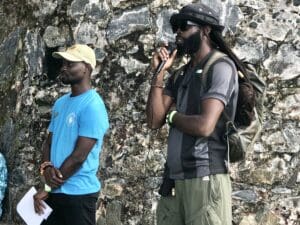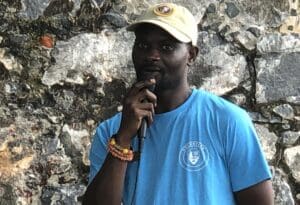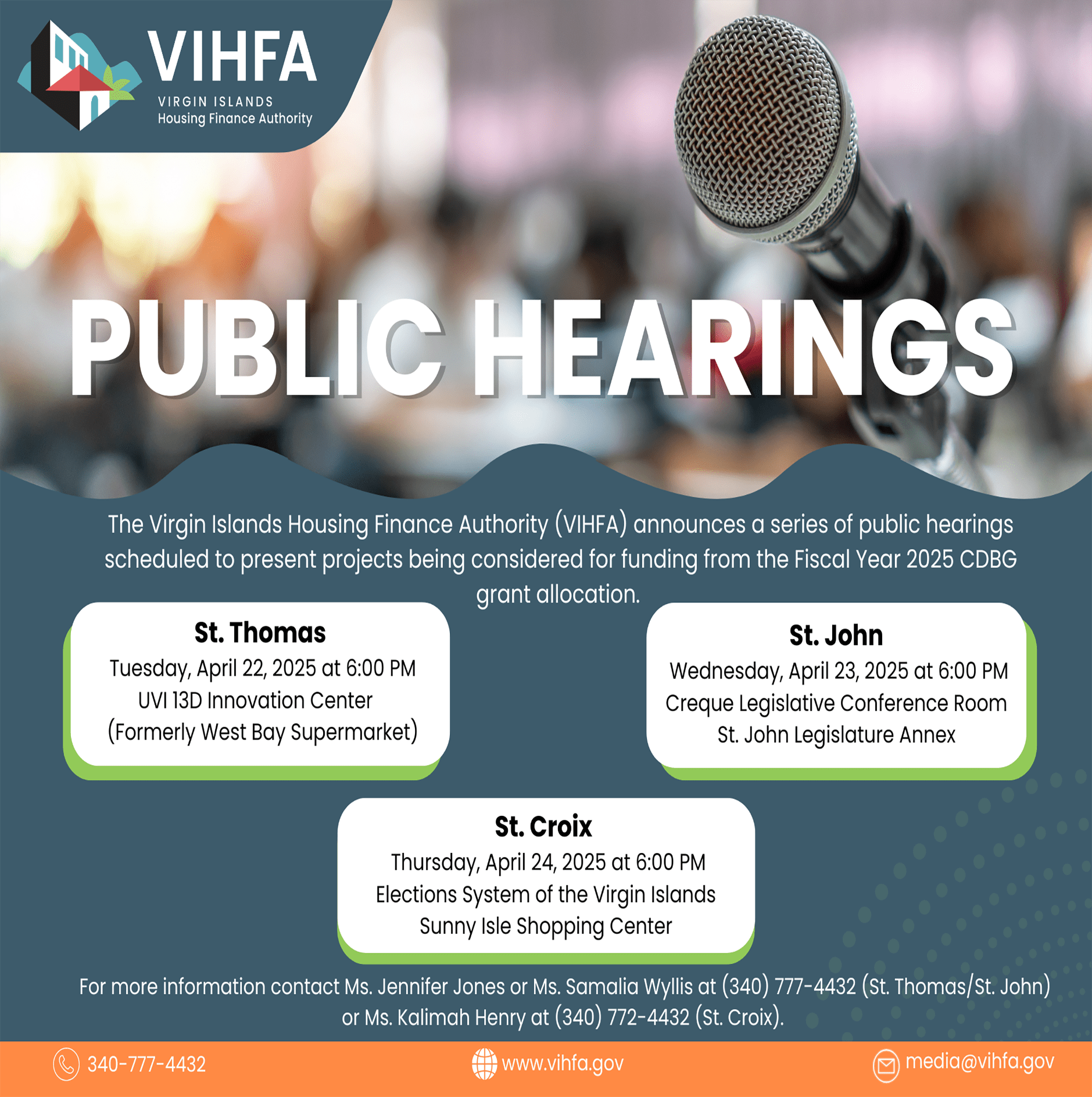Some families may relate to the story that was told the day after Thanksgiving by visiting Ghanaian scholar Samuel Acquwah — especially those who have sat at the table while relatives quarreled.

Acquwah spoke on Friday at the 40th Anniversary of the Fortsberg History Tour on St. John. As a representative of the Ghana Museum and Monuments Board, he came to lend another view of the people and actions that led up to the Akwamu Insurrection of Nov. 23, 1733.

At the Annaberg stop at the end of the day, he spoke of a royal family feud that led to one quarreling faction being hauled aboard a slave ship headed to the Danish West Indies. The feud began with the death of a king when his successor — a son — was too young to take the throne at that time.
The king’s brother — the boy’s uncle — became the regent of the kingdom. When the son came of age he asked for his birthright.
“He said no; he was not going to hand over to him. The prince had his own military; the regent, or his uncle, also had his own military,” Acquwah said.
The family clash took place against the backdrop of an ongoing civil war. Some of the warring factions took sides with one or the other feuding royals. “The loyalists to the regent were first captured and sold to the Danes … as slaves,” he said.
As they reached the Danish West Indies some of the leaders in the captive group looked at their situation and saw the system of slavery they found themselves in was different from what they knew back home.
“The Akwamu, when they realized the situation was not as they anticipated, they started planning,” he said. That caught the attention of other captives who knew the Akwamu as war lords and believed that if given a chance they would take over in the Caribbean.
Over the past 40 years, the story told about the insurrection became deeper and richer through the work of scholars; some of them researching historic records, some who travelled to dig into Danish archives.
Some, like Adjunct Professor Sele Adeyemi from Reynolds Community College, have written books. A graduate of Charlotte Amalie High School and a former UVI student, Adeyemi wrote “Engaging Freedom’s Journey: V.I. Africans Struggle for Self Determination and Empowerment (1644-1933).”
Others, like Anna Wallace Francis, gathered information each time she traveled with the tour. From a distance at the Catherineberg stop, she listened as Adeyemi told how leaders of the insurrection used the sugar mill there as a staging point for their island-wide takeover lasting six months.
Francis said she had joined the tour close to 40 times — maybe missing one or two, she said. “As a Pan African Support Group member, one of the things you promote is knowing your history — your culture, and the more you know the more you can project and say,” she said. “You study both the written literature and you go and speak to the elders, interviewing them. You have Sele Adeyemi, you have (Gilbert) Sprauve; all these people who have that historical, generational griot knowledge. From that griot knowledge, that’s what you’re supposed to start writing down,” Francis said.
As Adeyemi delivered findings from his research and studies, Sprauve listened in from a nearby car seat. “My travels have been rather limited compared to him, but of the little I have done I am happy to listen to Adeyemi … The present moment to me becomes a defining moment when I look at our existence.”
Sprauve, along with the late Professor Gene Emmanuel and the Pan African Support Group launched the history tour around 1983; they took history seekers on island-wide journeys to sites corresponding to the capture of the Danish garrison at Fortsberg and visits to the plantations where European property owners fled for their lives.
Support group member and former public school teacher Leba Ola-Niy said he saw the history uncovered to date as a starting line for future exploration. “We’re going to need to get some archives, and some of us are going to need to learn the Danish language so we can dig up information from those sources, because it wasn’t our ancestors who were writing this; it was the Danish,” he said.
The visit by the Ghanaian museums expert is being hosted by the Virgin Islands National Park. Acquwah is also scheduled to visit St. Croix and meet with students at some of the territory’s schools.
“We have been doing some programs over the past few months; he got here on Oct. 20. He did a program at the park in November. He’ll do another program on Dec. 14 — Saturday, 10 to 2 at the Resource Management Conference Room,” said Interpretive Division Chief Ahmad Toure.














